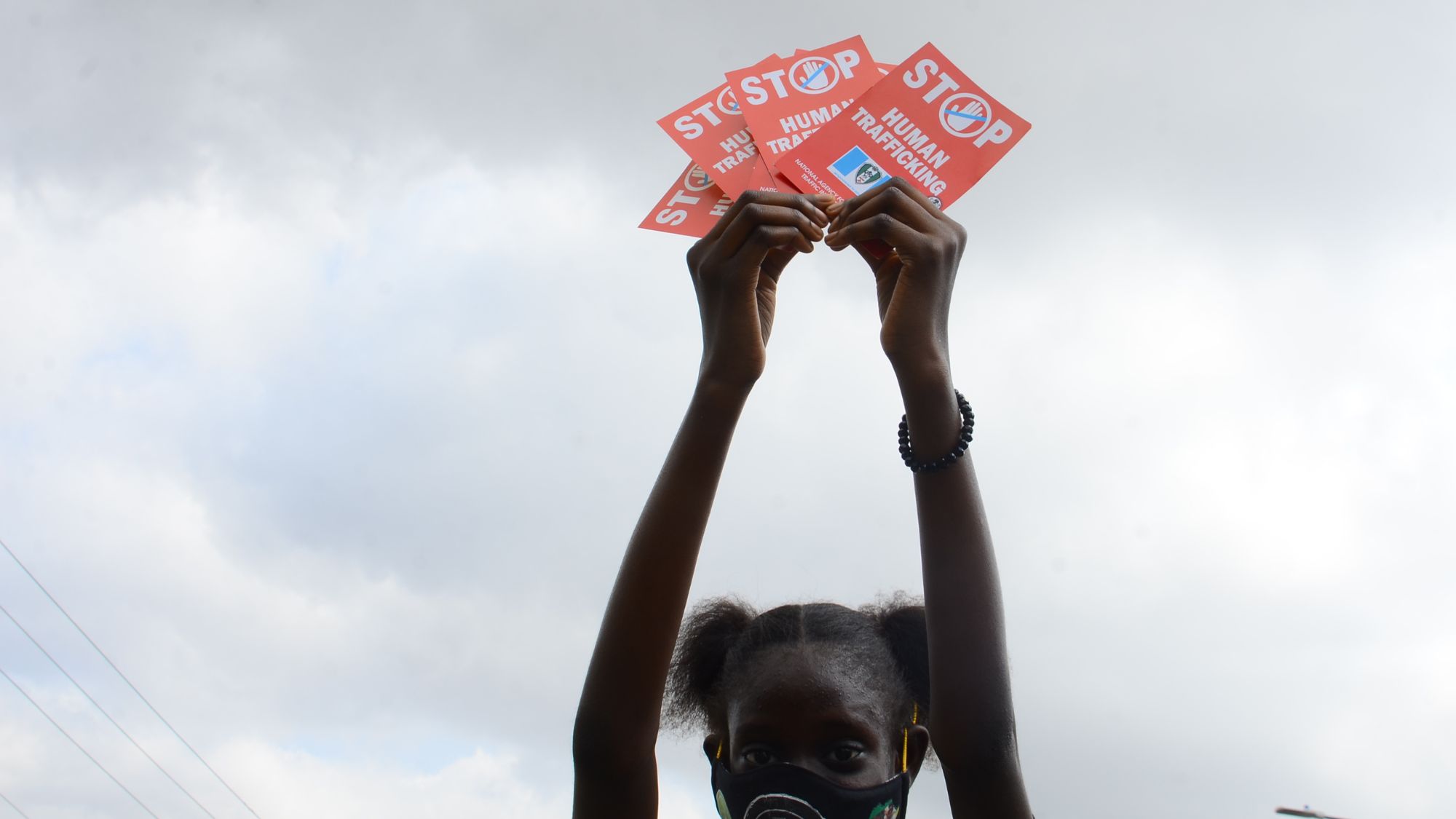Nigeria's 'baby factories': a hidden crisis
A secretive network sees women lured, locked up and forced to give birth for profit

A free daily email with the biggest news stories of the day – and the best features from TheWeek.com
You are now subscribed
Your newsletter sign-up was successful
A "worrying trend" is unfolding, said the BBC. Young children are possibly being taken into the UK illegally, some from Nigeria's so-called "baby factories".
Last summer, British authorities identified an infant seemingly trafficked into the UK, after a woman's elaborate "fake birth story" fell apart under scrutiny.
Behind locked doors and smiling facades, this deeply unsettling industry continues to thrive.
The Week
Escape your echo chamber. Get the facts behind the news, plus analysis from multiple perspectives.

Sign up for The Week's Free Newsletters
From our morning news briefing to a weekly Good News Newsletter, get the best of The Week delivered directly to your inbox.
From our morning news briefing to a weekly Good News Newsletter, get the best of The Week delivered directly to your inbox.
'Dirty, profitable business'
Many "baby factories" in the West African nation operate under a veil of legitimacy, "disguised as private medical clinics, orphanages, or even social welfare homes", said Human Rights Pulse back in 2021. But inside, women and girls are being held against their will, abused and forced to give birth for this "dirty, profitable business".
After the babies are born they are "forcefully taken away" either for adoption at a price, or to be trafficked to become "prostitutes or child labourers".
A "fear of poverty" due to challenging "socio-economic conditions" in Nigeria means both men and women have become vulnerable, said Deutsche Welle last year, while "crime rates" have increased. But "not everyone blames it on poverty". Bearing children is "considered significant in many African societies" and the pressure can cause "humiliation" for infertile couples. Traffickers know this, and a high demand – for male children in particular – makes the practice "especially lucrative".
Trafficking thrives due to the "ready market" for children, said Nigerian newspaper Punch. The legal adoption process can often be "prolonged, stricter and more expensive", driving couples to "resort to illicit means".
A free daily email with the biggest news stories of the day – and the best features from TheWeek.com
'Slow justice'
Law enforcement agencies in Nigeria have conducted occasional raids, freeing dozens of women and children at a time from captivity.
There is "no official data" to show how many babies are bought and sold, said Al Jazeera back in 2020, but estimates are that male children are typically sold for "between 700,000 naira (£1,440) to one million naira (£2,060)", while female babies are priced "between 500,000 naira (£1,030) and 700,000 naira (£1,440)". The United Nations estimates some "750,000 to one million persons are trafficked annually in Nigeria".
There have been arrests for involvement in the trade, but a "slow Nigerian judicial system" that "frustrates many cases" is blamed for the practice continuing to fester, said Punch.
Meanwhile, work to prevent trafficking continues abroad. The UK government has "restricted adoptions from Nigeria" since 2021 due to fears of the illegal movement of children, said the BBC. One expert said "DNA testing of newborn babies and purported parents" might help.
Rebekah Evans joined The Week as newsletter editor in 2023 and has written on subjects ranging from Ukraine and Afghanistan to fast fashion and "brotox". She started her career at Reach plc, where she cut her teeth on news, before pivoting into personal finance at the height of the pandemic and cost-of-living crisis. Social affairs is another of her passions, and she has interviewed people from across the world and from all walks of life. Rebekah completed an NCTJ with the Press Association and has written for publications including The Guardian, The Week magazine, the Press Association and local newspapers.